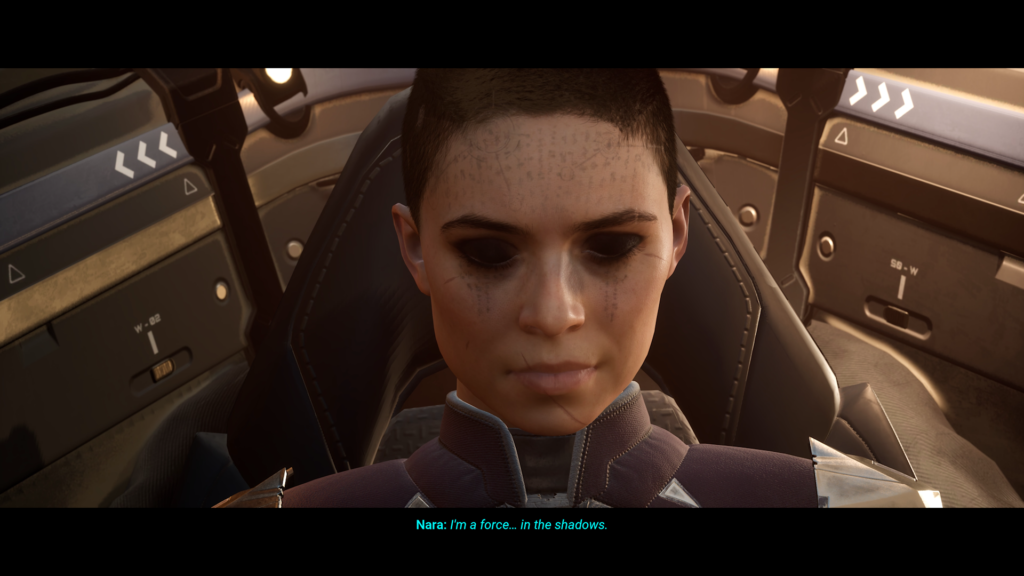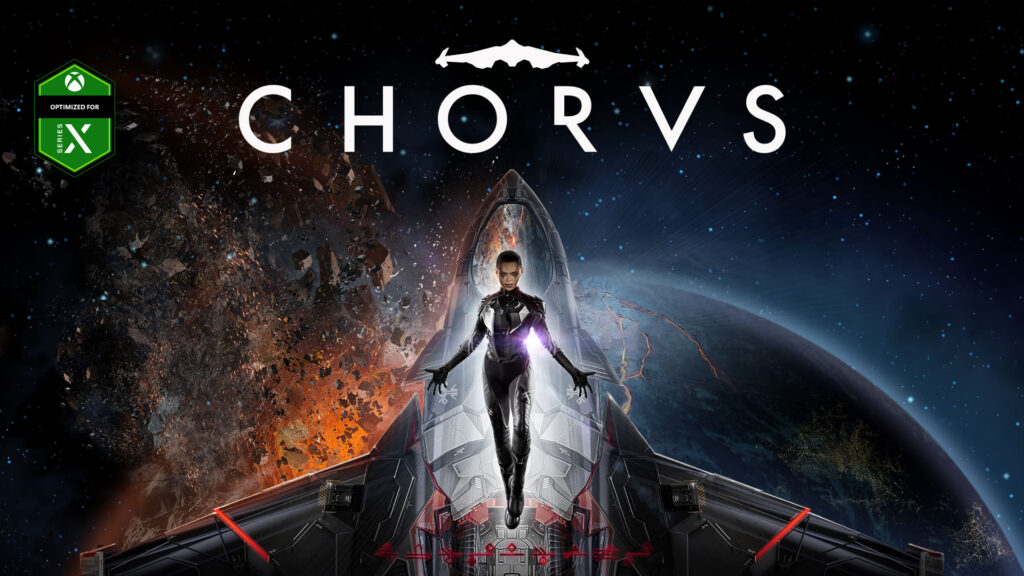
There just aren’t a lot of pure science fiction experiences available for consoles. There doesn’t seem to be any particular reason for it, but nonetheless it’s hard to find anything that would be considered purely science fiction these days. Sure, there are a few notable exceptions like Mass Effect, No Man’s Sky, and Everspace, but for the most part, sci-fi, especially space-based sci-fi is sadly lacking in gaming.
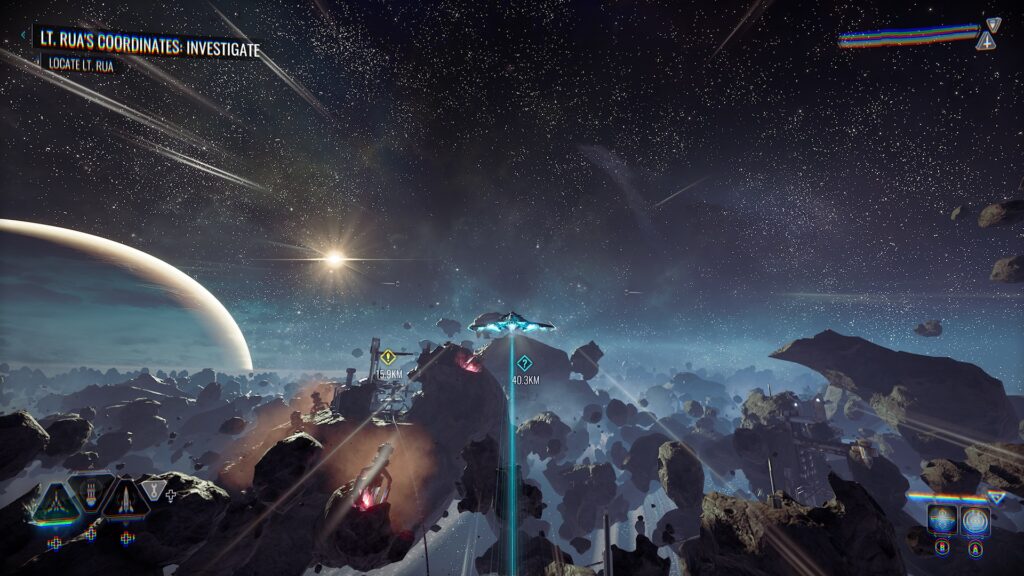
Enter Chorus from developer Deep Silver Fishlabs and publisher Deep Silver. Chorus is a pure science fiction experience. You play Nara, a reformed religious zealot and ace pilot with some special abilities who has run from her former cult, the Circle. Now that cult is back, taking over sectors of space and slaughtering the denizens wholesale. Nara has no choice but to rejoin her sentient spaceship Forsaken and fight back against her former leaders. This is an absolutely epic space tale, told entirely from Nara’s perspective.
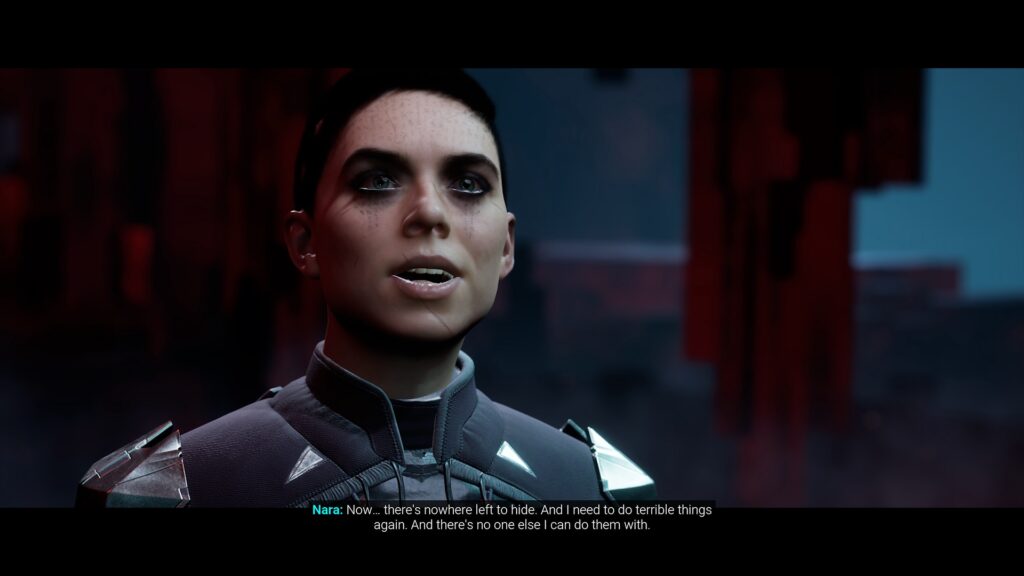
What’s fantastic about Chorus is that it simply throws you directly into the story. There’s no fiddling about and the overall feeling is one of total immersion into the game’s environments. Between the fully spoken dialogue, excellent voice acting, and riveting script filled with backstory, there’s rarely a moment where the game fails to be engaging. This is a narrative experience that pulls you along for a ride, never forgetting to meld the gameplay with the story in order to fully engage the player.
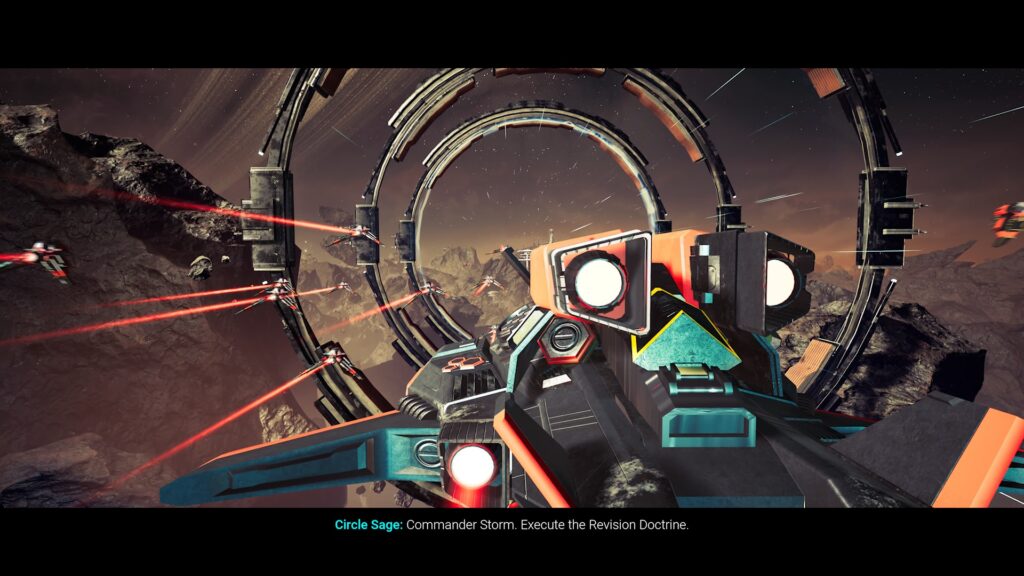
What you’ll soon notice about Chorus is that aside from the excellent storyline, the gameplay is also a primary focus. Great care has been taken designing the interface for the ships you’ll control during gameplay and dogfights feel tense and stressful. You might even find yourself on the edge of your seat while playing, straining as your boosters kick in and your ship twists out of the path of incoming fire while tracking a bogey across the asteroid field. Sounds pretty cool, right? Well, it definitely is. At this point, it is important to note that gameplay starts out pretty challenging in Chorus. You won’t be mastering the controls instantaneously and some of the early fights are pretty challenging, especially before you start amassing upgrades.
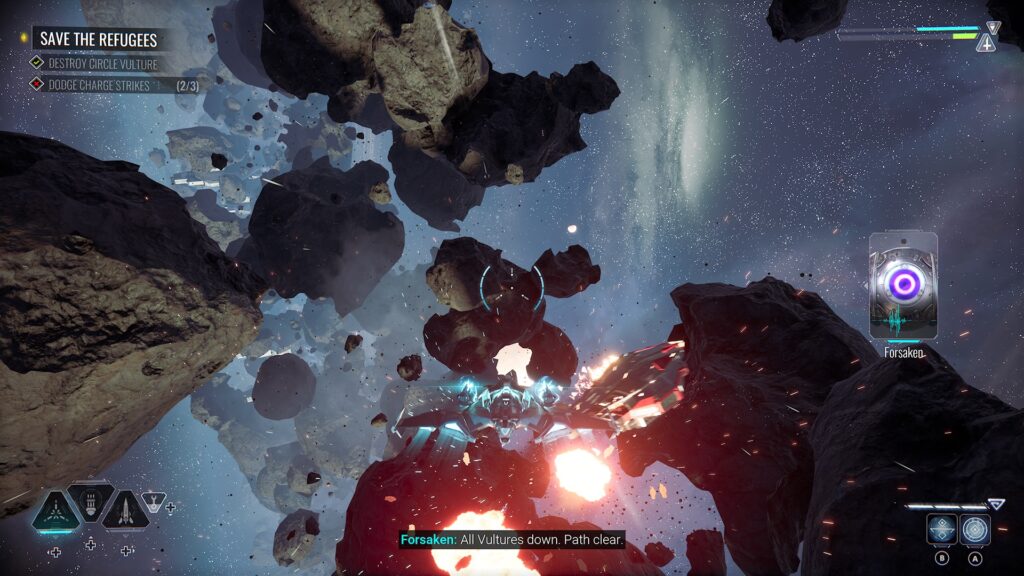
Don’t worry though; it doesn’t stay that hard forever! Once you get the feel for the interface, dogfights are a lot more fluid in Chorus and you’ll be tearing apart whole enemy sorties like an ace pilot yourself! If you’re familiar with the Wing Commander series, Chorus has more than a bit of that old Wing Commander charm. Combat is third person and consists of you tracking and leading enemy fighters, then smothering them with gatling fire, lasers, and even missile attacks. Unfortunately for you, if you slow down, they tend to get a bead on you pretty darn fast and that’s big trouble. The game requires you to master quick strikes and rapid turning to really be an effective fighter, but unlike other space battle simulations, these controls are not only accessible but well-designed, lacking only reverse thrusters to really control your ship. Other than reverse and lateral movement, you have full control over your ship and Forsaken response smoothly, allowing you to turn on a dime, coast around other ships and then turn on them like a bird of prey, blasting them out of the sky before they even have a chance.
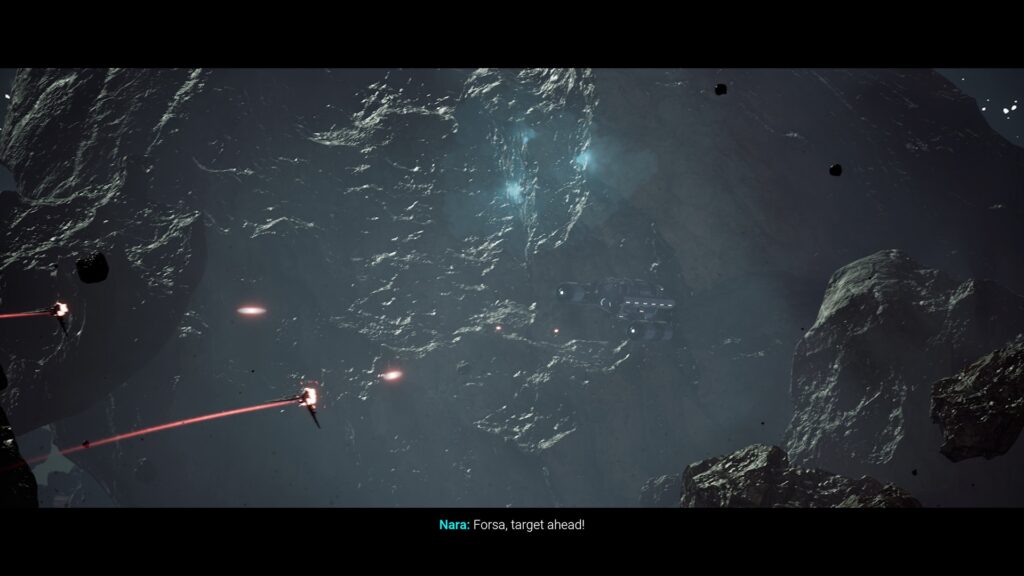
Suffice it to say, Chorus is an excellent space dogfighting simulator. Eventually Nara unlocks her special skills as well, known as Rites. These allow her to search for key items in the environment, warp Forsaken to warp points during combat, view the memories of the dead, and even drift Forsaken at angles that would flatten a normal human with G-forces in order to pounce upon enemy combatants. With each new Rite, Nara and Forsaken become more powerful and more fun to play. On top of the Rites, all weapons can be upgraded and additional slots are available for ship accessories that allow you to customize the effectiveness of your ship. These modifications give you a distinct edge that you’ll lack at the beginning of the game, especially since there’s no lock-on available in the game.
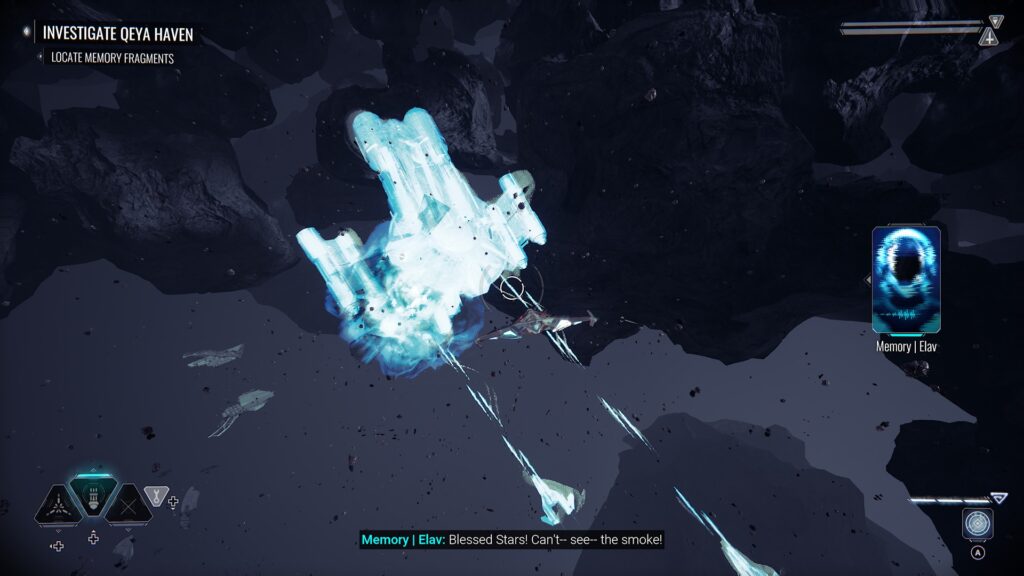
Speaking of lock-on, it’s possibly the most irritating thing about Chorus. Some of the ships are ridiculously fast in the game, and a lock-on would mean a lot less time wasted hunting down each ship to fulfill a mission goal. However, it would also be a cop-out on skill levels and many players would find the game far too easy. Even so, it’s still a bit galling to barely be able to hit that last ship that jukes and dodges like a pinball on steroids when you just want to move to the next story segment. It’s also a bit hard to find key points in a mission sometimes, as the Rite that reveals them actually has two modes, one requiring a short button press and another requiring a long one. That information is never presented in the tutorial section and even when you realize it, sometimes it’s hard to remember and hard to orient your ship to the right direction before the Rite indicators fade from the screen and you have to hit your search over again.
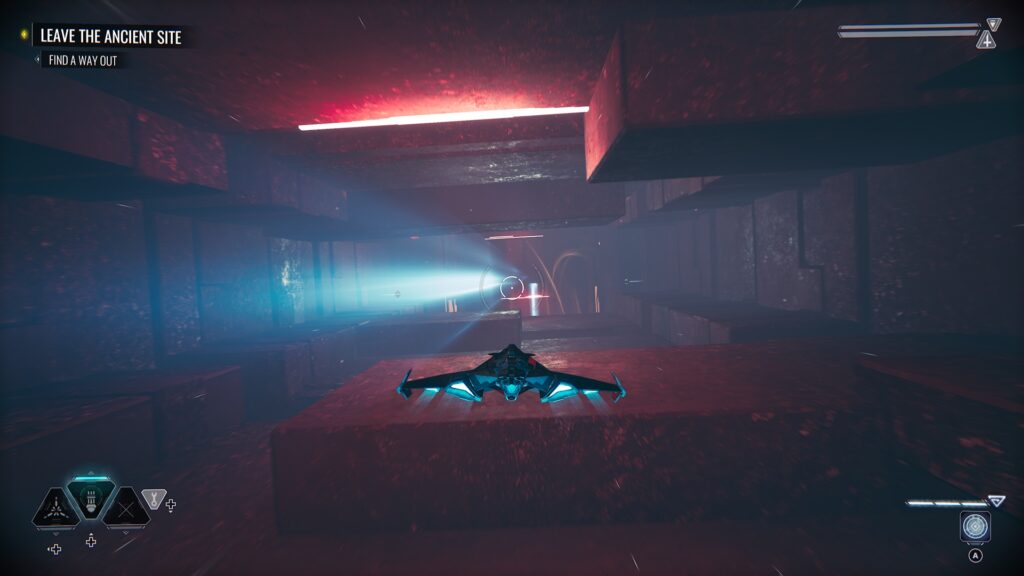
Regardless of these few little missteps, Chorus is an utterly outstanding game in nearly every aspect. It’s also an open world game, something that really hasn’t been done much in space sims. Even though you never actually leave your ship outside of cinema sequences, you get to choose side missions, earn extra credits, modify your ship to suit your needs, and are generally in control of your own somewhat linear destiny. In true open world fashion, there’s no expectation to complete a task within a given time usually. If there is, a timer is supplied, and don’t worry, you’ll get to race other ships! Some of the missions are multi-component ones with complex tasks to complete and you even have to travel between sectors using the jumpgates in many cases.
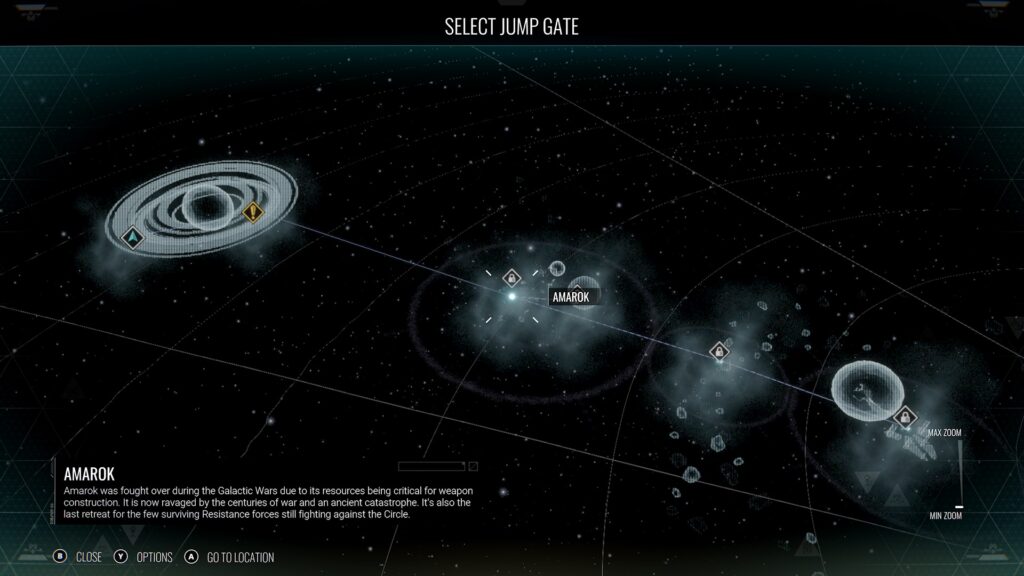
Enemies are also compelling, with the Circle being an effective and interesting antagonist and the enemy ship variety fairly diverse. Some of the larger ships are pretty challenging to defeat too, making for some interesting combat situations! And the design work is excellent, with a unique feel to many ships and station designs. In fact, the game is visually stunning across the board and the absolutely gorgeous backgrounds are just as compelling as the well-detailed cinemas and complex space bases. Just flying about with the rings of a nearby planet in your field of view or dodging through tunnels at high speed on a timer are smooth, lush experiences that blend seamlessly into one another. The only real downside is using boosters to slowly travel across vast areas, and even then, at least the scenery is excellent! It is a bit weird that the boosters vibrate the XSX controller so much, but it’s a minor gripe at best. The accompanying soundtrack perfectly complements the outstanding visuals as well, and would make for an excellent soundtrack download!
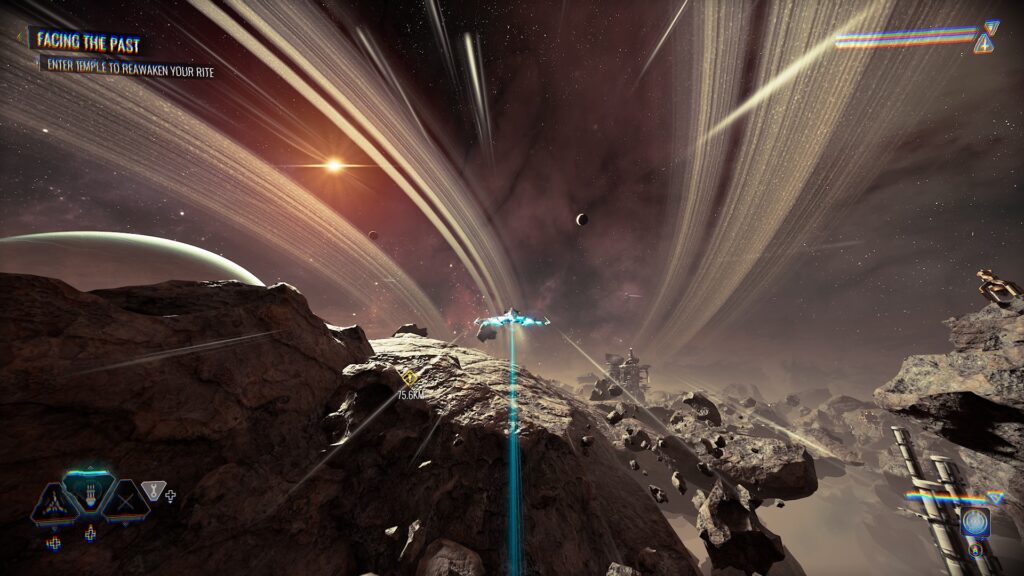
The simple fact of the matter is that Chorus is a vibrant, compelling science fiction space simulation that draws you deep into characters and combat and never really lets up. It’s not a long game by any means, clocking in around the 15 hour mark if you’re good in a fight and don’t toss too many side missions into the mix and another 5 to 7 hours if you do, but that whole time is going to be chock full of immersive combat and deep world-building and narrative that makes the length perfectly palatable. Chorus is what modern gaming should be: A focused, intense story with interesting characters, excellent gameplay design, and compelling graphics. At $40, it isn’t a bargain price, but for the quality of the content you get, it’s still a heck of a deal! If you even remotely love science fiction and space simulations, Chorus is a legitimate must buy title and an wonderfully unexpected sleeper that should definitely be on its way to hit status. Get your ship, blast some cultists, and enjoy!
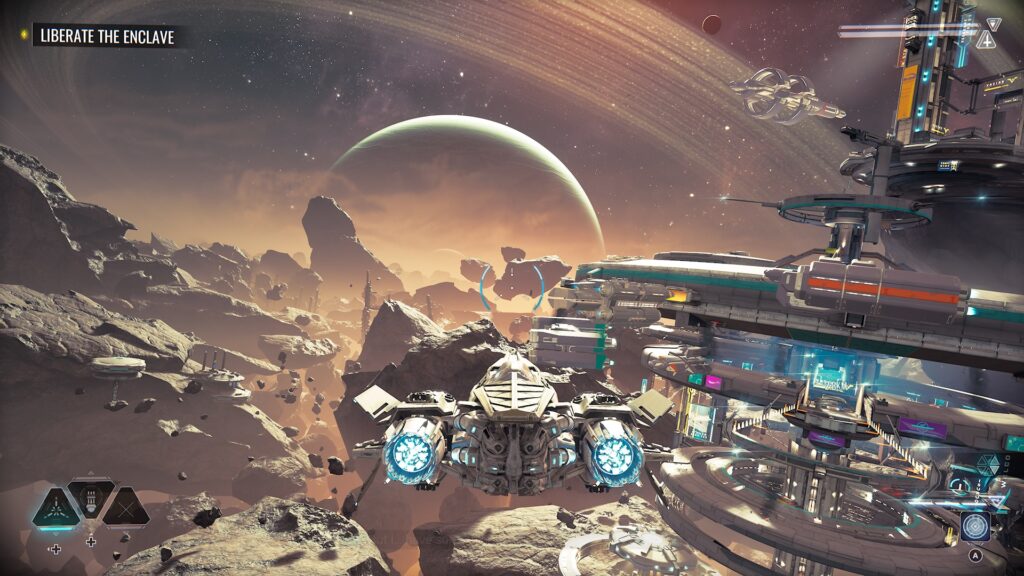
This review was based on a digital copy of Chorus provided by the publisher. It was played on an Xbox Series X system using a Sony 55” 1080p TV. Chorus is also available for PS4, PS5, Xbox One, Steam, Epic, and Amazon Luna.
